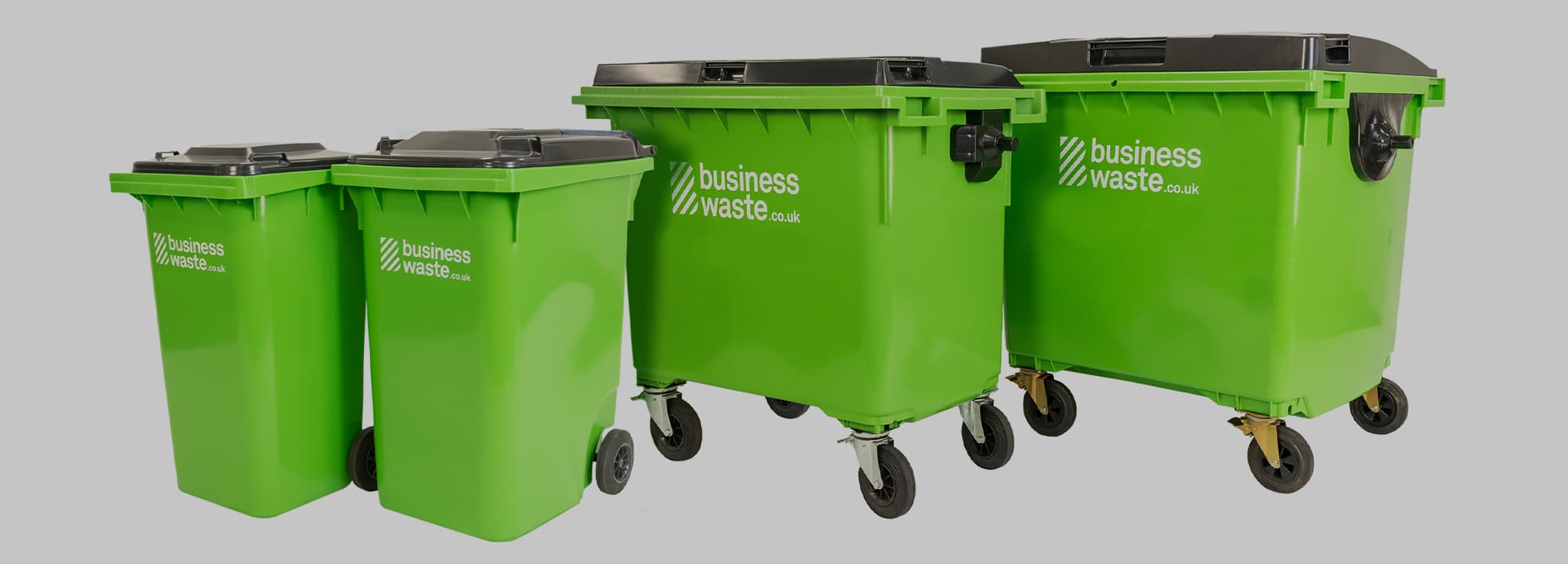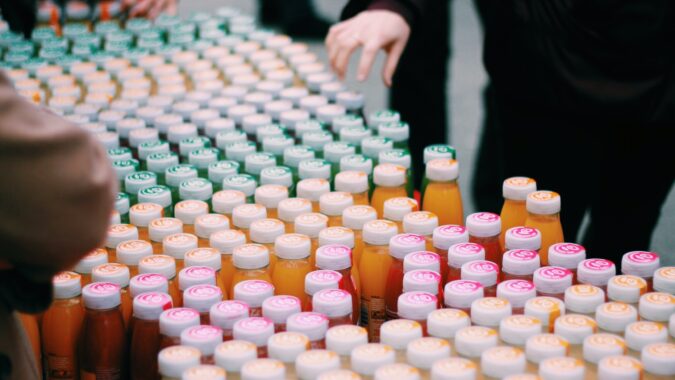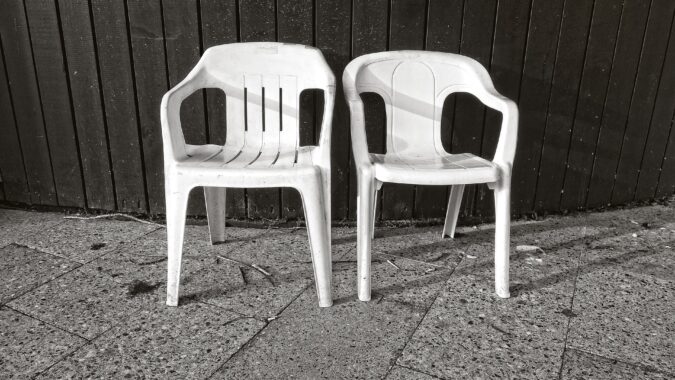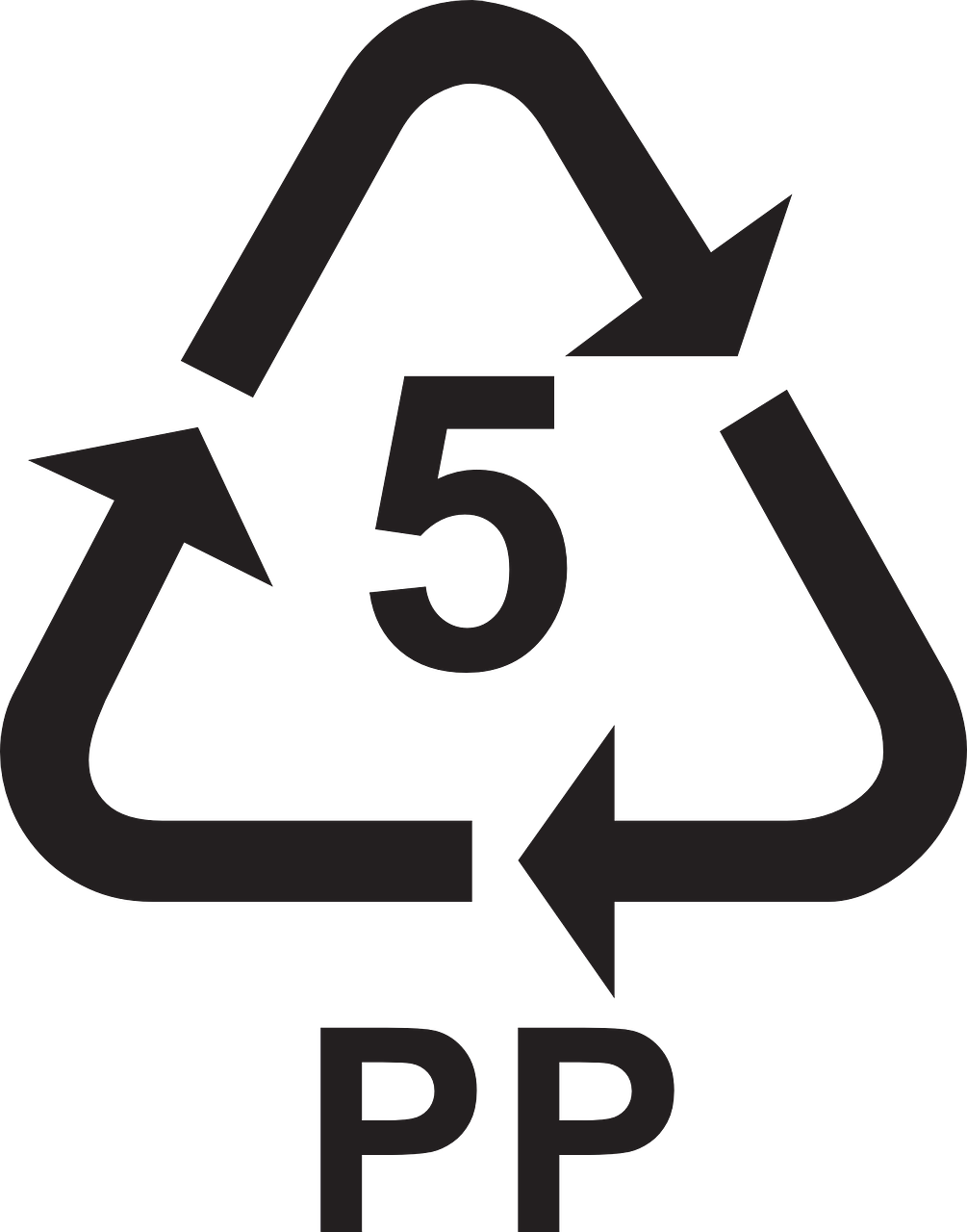
Polypropylene Recycling
Recycling polypropylene (PP) is possible and should be done wherever possible to help protect the environment. It’s one of the most used types of plastic, both combined with other plastics and materials to create various products and as a standalone material. Many businesses use polypropylene products regularly, which are recyclable.
Polypropylene is an incredibly versatile plastic and around 2.25 billion kilograms of polypropylene plastics are produced every year. Even though much of this is recyclable, lots of waste polypropylene sadly ends up in landfill. Find out how you can recycle polypropylene to help protect the environment and save your organisation money too with Business Waste.
Call 0800 211 8390 or contact us online today for a free quote for plastic waste collections to start recycling polypropylene.
Get a fast quote
Get a fast FREE quote for polypropylene recycling
- Free quote within 1 hr
- Any type of polypropylene
- FREE bins and delivery
- We cover all of the UK
What is polypropylene?
Polypropylene (PP) is a thermoplastic polymer. It has a high melting point and is resistant to many bases, acids, and chemical solvents. PP also has a high strength-to-weight ratio and is incredibly sturdy, despite being lightweight. It’s one of the most popular plastic types and around 30% of all PP is used by the packaging industry.
The attributes of polypropylene make it popular to create a wide range of plastic goods, from packaging and textiles to rigid yet easily moulded plastic items. Electrical and equipment manufacturers use about 13% each of the global PP produced, while household appliances and the automotive industry are responsible for 10% each.
Polypropylene is used to make all sorts of goods and products, such as:
- Food packaging – bottle caps, yoghurt pots, and microwavable containers
- Packaging materials – shampoo bottles, drinks bottles, carrier bags, and pallets
- Automotive materials – car bumpers, instrument panels, and door trims
- Garden furniture – outdoor plastic moulded chairs and tables
- Industrial items – piping, valves, fittings, and gears
- Medical equipment – disposable syringes, pill bottles, and disposable cubicle curtains
Can you recycle polypropylene?
Polypropylene is recyclable. It can be separated from other plastic types, melted into a liquid, cooled, and turned into pellets, then used to form new plastics. However, polypropylene loses its strength and flexibility as it goes through the recycling process. It may be mixed with new PP to improve the quality of recycled products.
PP has the plastic code number 5. You should check if your local authority recycles such plastic types before placing any polypropylene products in your domestic recycling bin. Businesses can arrange commercial collections of plastic waste and specify polypropylene to ensure it’s separated and recycled properly to avoid it ending up in landfill.

How is polypropylene recycled?
Recycling polypropylene is harder than some other plastics and follows a few specific steps. Businesses can store PP in bins for plastic recycling with no need to separate the plastic types themselves. Then arrange collection by licensed waste carriers. They’ll transport your plastic recycling to a nearby facility for processing and recycling polypropylene following these steps:
- Separating – first, all polypropylene is separated from other plastic and contaminants. Sometimes this is done through sink-float separation, as less dense PP will float, while heavier polymers sink.
- Cleaning – the PP and any containers (such as bins and buckets) are then cleaned to remove contaminants. Any contamination could affect the recycling process and prevent manufacturers from using recycled plastics in new products.
- Melting – separated polypropylene is heated to temperatures of around 205°C to reach its melting point. This is fed into an extruder and continuously heated until it turns into a liquid.
- Cooling – the melted polypropylene is then cooled and formed into pellets, which are used by manufacturers in their production processes to create new products. The polymers lose strength and flexibility through successive recycling, so some recycled pellets may be mixed with new PP to add strength.
Why is polypropylene
recycling important?
Polypropylene recycling is important as currently only around 1 to 3% of PP is recycled in the UK. Recycling polypropylene from businesses and homes helps increase this rate and reduce the amount of plastic going to landfill. PP takes between 20 and 30 years to biodegrade, so it can remain in landfill for decades.
The additives used in the manufacturing of PP can include toxins such as cadmium and lead. These may leach when left in landfill, contaminating nearby water, land, and air, which harms local wildlife and ecosystems. Other methods of disposal like burning and incineration of PP can also release harmful vinyl chloride and dioxins.
Recycling polypropylene also uses less energy and raw materials compared to creating new PP – including oil and propane gas. Around 8% of global oil is used to make new plastic materials and products. Producing recycled plastic uses 88% less energy than forming new plastic too, so recycling PP can have a significant positive impact.
Another benefit of PP recycling for businesses is that it saves your organisation money on disposal costs. Recycling polypropylene plastics avoids sending such waste to landfill, which reduces the amount of landfill tax you pay for its disposal. Consider PP recycling to help protect the planet and save your company money.

How to dispose
of polypropylene
Businesses can dispose of polypropylene by placing it in a plastic recycling bin and arranging removal by licensed waste carriers. At Business Waste, we provide recycling services for polypropylene products. Dispose of PP by following these steps:
- Get a free no obligation quote for plastic waste collections – whether you need a one-off removal, daily, weekly, or fortnightly collections. The price will be based on the number and size of bins you need, where you are in the UK and the frequency of collections.
- Arrange free delivery of plastic bins to store your used polypropylene materials and products, alongside any other plastic waste. We’ll deliver the bins at an agreed time and date – you just cover the costs of collection.
- Fill your plastic waste bins with polypropylene and any other recyclable plastic waste, then place them at the agreed pickup point ahead of the collection time.
- Our licensed waste carriers will come and remove your plastic bins, replacing them if you’ve arranged regular plastic waste collections.
- Your plastic waste will be transported to a nearby waste management facility. Here the polypropylene is separated from other plastics, sorted, cleaned, and recycled to create new plastic products.
- Finally, you’ll receive a free duty of care certificate as proof that your polypropylene plastics were disposed of safely, legally, and in an environmentally friendly way.
To dispose of polypropylene at home, check if your local authority accepts it in your domestic recycling bins (PP 5). If not, see whether you can take it to your nearest household waste recycling centre (HWRC) for recycling. Alternatively, arrange collection of plastic recycling by Business Waste.

Who needs to
recycle polypropylene?
Any business or organisation that has any amount of polypropylene waste needs to recycle it, rather than dispose of it with general waste. Recycling PP products and materials helps look after the environment and save you money. Some of the main industries that create high volumes of polypropylene waste for recycling are:
- Healthcare – disposable cubicle curtains/slide sheets, medication bottles, and disposable syringes
- Automotive – damaged plastic bumpers, gears, and other car parts
- Retailers – carrier bags, old plastic stock such as garden furniture
- Catering – food packaging (such as plastic wrapping, bottles, and containers)
Arrange polypropylene waste collection
Book regular or ad hoc collections of your polypropylene waste wherever you’re based in the UK with Business Waste. We can provide free bins to store all types of plastic waste on your premises, you only pay for collection. One-off, daily, weekly, and fortnightly collections are available to suit your needs.
Start with a free quote tailored to your needs, with no obligation. Select from a range of two and four-wheel bins and fill each one within its weight limits before collection. We ensure all plastic waste is recycled where possible to reduce the amount of waste that ends up in landfill.
Call 0800 211 8390 or contact us online today for your free quote. If you’ve got any questions then one of our friendly and expert team can help and advise on the best solution for you.
Polypropylene recycling FAQs
-
Why is polypropylene difficult to recycle?
Recycling polypropylene can be difficult as it must be separated from other plastics made from different polymer types because they melt at different temperatures. This can add time and costs to the recycling process. If PP products aren’t properly sorted and separated then contaminants can make the recycling process a failure.
Another difficulty with recycling PP is that it loses strength and flexibility when recycled successively, weakening bonds between hydrogen and carbon. This means polypropylene can’t be endlessly recycled. However, some facilities mix recycled PP with new polypropylene as a somewhat sustainable solution.
-
Is polypropylene biodegradable or compostable?
Polypropylene is not biodegradable or compostable. However, it takes much less time to break down and decompose compared to many other plastics. PP can degrade in 20 to 30 years, while the likes of polyethene and polystyrene may take more than 500 years to fully decompose.
-
What happens to polypropylene in landfill?
Polypropylene in landfill can take 20 to 30 years to completely break down and decompose. During this time any additives from the manufacturing process (toxins like cadmium and lead) may leach into the landfill. This can pollute local land, water, and air supplies, which is why recycling polypropylene and diverting it away from landfill is essential.
-
Does bleach dissolve polypropylene?
Bleach does not dissolve polypropylene. However, exposure to bleach causes a strong oxidising effect that can lead to PP degrading. You can dissolve PP in nonpolar solvents such as xylene, tetralin, and decalin at an elevated temperature. Polypropylene is resistant to many chemicals and solvents with a high melting point, which makes it popular for a wide range of purposes.
-
What is the lifespan of polypropylene?
Most polypropylene products have a lifespan of around 20 years, which is relatively short for plastic goods. PP items are highly durable, and some may last for longer, depending on their care, usage, and storage conditions. When polypropylene reaches the end of its life it can take between 20 and 30 years to fully degrade.
-
What is the recycle code for polypropylene?
Polypropylene has the plastic code number 5. Check any plastic products for the recycling symbol with 5 inside it (and sometimes PP below the recycling triangle) to see if it’s polypropylene. Find out more in our guide to recycling symbols.
Get a fast and free quote
Get a fast FREE quote for plastic waste collection
- Free quote within 1 hr
- Any type of waste plastic
- FREE bins and delivery
- We cover all of the UK